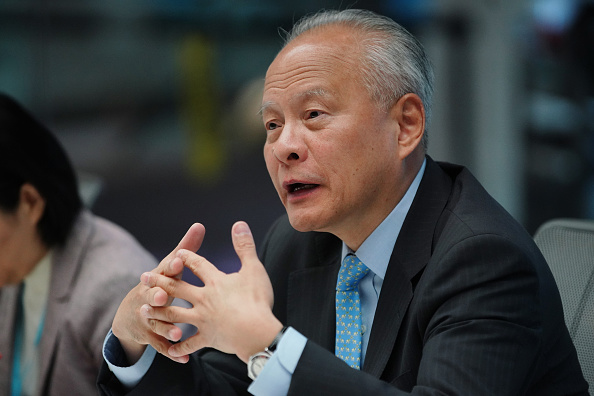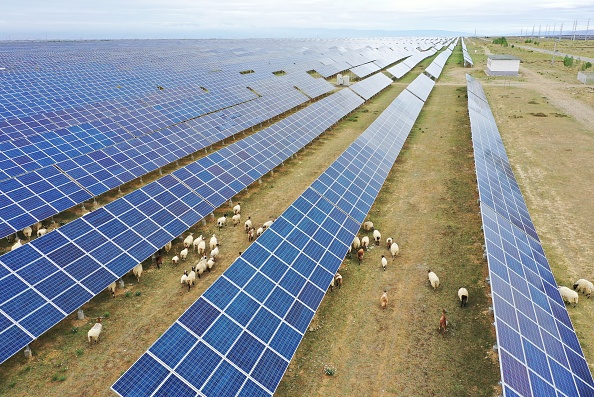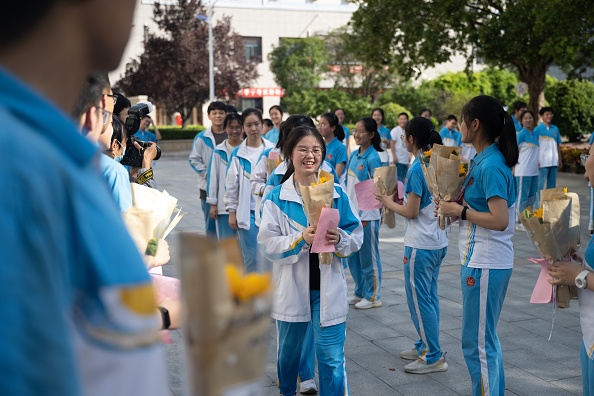
 Critical Crossroads
Critical CrossroadsChina's longtime ambassador to the United States has officially announced his retirement, leaving his post of eight years as bilateral relations grow increasingly uncertain. Ambassador Cui Tiankai, now 68, served throughout three U.S. presidencies during his tenure in Washington, making him China's longest-serving ambassador to the U.S. Cui wrote a farewell letter emphasizing the responsibility of Chinese people in the U.S. to advance bilateral relations at a point of "critical crossroads" between the two countries, and to defend their right to be in the U.S.
Cui's departure will leave vacant ambassador positions in both Beijing and Washington, as former U.S. ambassador to China, Terry Branstad, left his role last year. Though former diplomat Nicholas Burns is expected to secure this position, the Biden administration has yet to make an official announcement.
It is also uncertain whether U.S. and Chinese officials will meet next week at the G20 Ministerial meeting in Italy. No meetings have been scheduled between U.S. Secretary of State Anony Blinken and Chinese Foreign Minister Wang Yi as of yet, according to the State Department. The last meeting between the two took place in March, during a strained high-level summit in Alaska. Biden and Xi Jinping are expected to have another phone call later this year, marking Biden's second call with Xi as President. Deputy Secretary of State Wendy Sherman is also expected to travel to China this summer. Read more in The West and China Enter a New Stage in Relations, by David Shambaugh, Director of the China Policy Program at George Washington University.
 Trade Troubles
Trade TroublesThe White House announced a ban on imports from China of polysilicon, a crucial component in many solar and electrical products. Most of the world's polysilicon comes from Xinjiang, China, where the United States and other European countries have accused China of forced labor and other abuses. Among the companies banned was Hoshine Silicon Industry Co., one of China's largest polysilicon producers. Over the past 2.5 years, the United States has imported over $150 million worth of finished goods and $6 million of the raw component from Hoshine alone. On Friday, Foreign Ministry spokesperson Zhao Lijian hit back at the U.S., calling the move "sinister" and intended to "contain China," saying China will "take all necessary measures" to protect Chinese companies.
U.S. lawmakers also expressed concern over China's interest in joining the CPTPP, in a hearing on Asia-Pacific trade this Tuesday. Senator Tom Carper, who chairs the Senate finance subcommittee on international trade, called on Congress to "take China's interest seriously and begin the hard work of developing a comprehensive policy toward re-engagement with our allies in this part of the world." China announced it had met with officials from Australia, Malaysia, New Zealand about joining the trade pact, although details were left unclear.
The regional trade deal, which was originally proposed during the Obama administration, was intended to function as a counterbalance to China's growing trade power. But after Donald Trump withdrew from the deal in 2017, the pact went on to be revised and renamed without U.S. presence. Several U.S. legislators are now calling on Washington to re-engage with the pact, and have also asked U.S. Trade Representative Katherine Tai to provide direction on how to reassert U.S. influence in Asia.
 Boosting the Birth Rate
Boosting the Birth RateIn an apparent effort to boost China's birth rates and quell anxieties about the wealthy buying their way ahead in China's high-pressure education system, Chinese officials just announced education reforms, including new restrictions on the appropriate amount of homework, as well as guidance on after-school activities across the nation. Not only is student workload being managed directly by federal regulations, but officials will also start rotating teachers among schools.
For decades, a booming white-collar economy coupled with a growing middle-class has increased the cost of raising children in China. Entrance into a good university can make or break the future prospect of a Chinese teenager, so a lucrative industry around private tutoring and evening 'cram schools' has emerged, and the price of real estate near quality public schooling has gone up. One study showed that in Shanghai, parents spent an average of $80,000 on tutoring, before children even reached high school.
This is one of the reasons why many of China's couples have put off childbirth, leading to the sharpest decline in birth rates in the country in over 30 years. Those in less-populated and rural areas that are unable to access the same type of extracurricular tutoring services are left even further disadvantaged.
Following the new regulations, publicly traded Chinese firms dealing in cram schools and tutors have seen the price of their shares crash, with three top companies - accounting for $50B in trade - losing more than half of their value as a result.
Prepared by China-US Focus editorial teams in Hong Kong and New York, this weekly newsletter offers you snap shots of latest trends and developments emerging from China every week, while adding a dose of historical perspective.
- 2021-06-18 Part of the Club
- 2021-06-11 Retaliatory Legislation
- 2021-06-04 "Defanging" Diplomacy
- 2021-05-28 The End of an Era?
- 2021-05-21 One Step Forward, One Step Back
- 2021-05-14 Drifting Trade Ties
- 2021-05-07 Time to Talk
- 2021-04-30 Academic Pandemic
- 2021-04-23 Carbon Cutting
- 2021-04-16 A Hopeful Climate
- 2021-04-09 Technological Frontiers
- 2021-04-02 Back to Basics
- 2021-03-26 The Biden Era
- 2021-03-19 “A Strong Smell of Gunpowder and Drama”
- 2021-03-12 Bridging the Divide
- 2021-03-05 A Tale of Two AI Superpowers
- 2021-02-26 Changing of the Guard
- 2021-02-20 Collective Approaches
- 2021-02-13 Hopes for a Bullish Year
- 2021-02-05 “The Most Serious Competitor”
